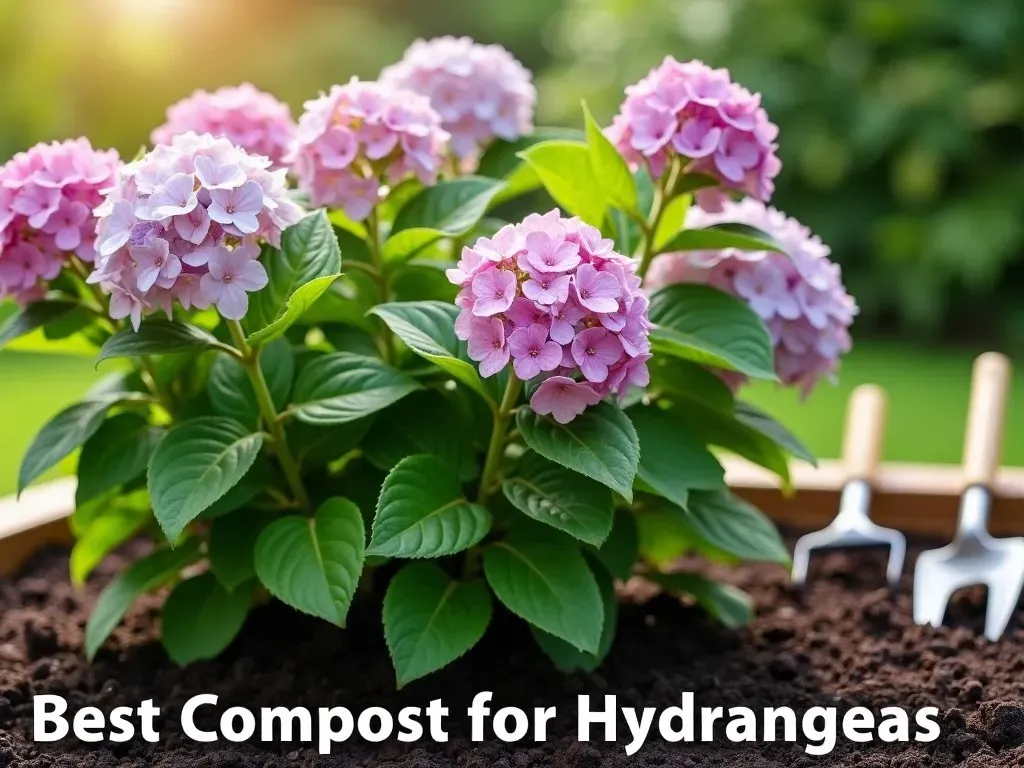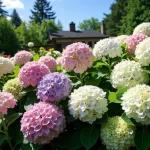When it comes to hydrangeas, choosing the best compost is crucial for vibrant blooms and healthy plants. The right compost not only enriches the soil but also influences the color of the flowers, making your gardening experience even more delightful. Let’s delve into the best compost options for hydrangeas and how to ensure your plants thrive.
Understanding the Needs of Hydrangeas
Hydrangeas thrive in nutrient-rich, well-draining soil that retains moisture. Composed mainly of organic matter, the best compost for hydrangeas provides the essential nutrients required for their growth. This organic material is beneficial for improving soil structure, aeration, and moisture retention, which are vital for healthy hydrangea plants.
Key Components of the Best Compost for Hydrangeas
- Organic Matter: Compost derived from plant material, kitchen scraps, and leaves enriches the soil and provides nutrients.
- pH Balance: The pH level of the compost directly affects the color of hydrangea flowers. Acidic soils produce blue flowers, whereas alkaline soils yield pink ones.
- Nutrient-Rich: A well-balanced compost contains nitrogen, phosphorus, and potassium, necessary for optimal growth.
Table: Nutrients Required for Hydrangeas
| Nutrient | Function | Source |
|---|---|---|
| Nitrogen | Promotes leafy growth | Compost, manure |
| Phosphorus | Enhances root development and flowering | Bone meal, fish emulsion |
| Potassium | Aids overall plant health and drought resistance | Compost, wood ash |
| Calcium | Strengthens cell walls, improving plant health | Lime, gypsum |
Types of Compost Suitable for Hydrangeas
Choosing the right type of compost is essential for the health of hydrangeas. Here are some of the best options:
- Well-Rotted Garden Compost: A balanced mix of decomposed organic material, perfect for enriching soil.
- Ericaceous Compost: Ideal for acid-loving plants. It helps maintain a lower pH, encouraging blue blooms.
- Mulched Leaf Compost: Created from fallen leaves, this compost is rich in nutrients and excellent for moisture retention.
Using Compost in Hydrangea Care
Preparing the Soil: When planting hydrangeas, mix a layer of compost into the existing soil at a depth of 6-8 inches. This practice improves soil structure and nutrient availability.
Top Dressing: For established plants, a top dressing of about 3-4 inches of compost can rejuvenate the soil, promote earthworm activity, and encourage further growth.
Chart: Application Techniques for Compost in Hydrangeas
| Application Method | Timing | Description |
|---|---|---|
| Soil Mixing | Pre-planting | Incorporate into soil at planting time |
| Top Dressing | Spring and Fall | Spread compost around base annually |
| Watering with Compost Tea | Throughout the growing season | Aerate compost in water, use as a liquid feed |
Frequently Asked Questions
1. Can I use store-bought compost for hydrangeas?
Absolutely! Look for compost labeled as "organic" and check for its pH level if you aim to influence flower color.
2. How often should I apply compost to my hydrangeas?
For optimal results, apply compost once in the spring and once in the fall.
3. What should I do if my hydrangea leaves are turning yellow?
Yellowing leaves can indicate nutrient deficiencies. Supplementing with compost or a balanced fertilizer can help address this issue.
4. How does the compost pH affect my hydrangeas?
Soil pH directly influences flower color. If you want blue blooms, maintain a pH below 6.5 by using ericaceous compost. Conversely, for pink blooms, ensure a pH of 7.0 or higher.
Additional Tips for Hydrangea Owners
- Monitor Soil Moisture: Hydrangeas enjoy moist soil. Ensure that your compost helps retain moisture without causing waterlogging.
- Test Soil pH Regularly: Regular pH testing will aid in adjusting your compost formulation, optimizing bloom color.
- Diversify Compost Types: Using a mix of compost types can provide a broader range of nutrients, benefiting the hydrangea plants comprehensively.
Conclusion (Omitted as per request)
This exploration of the best compost for hydrangeas highlights the importance of organic amendments in achieving fabulous blooms. For further reading on how compost impacts hydrangeas, you can check Planting Geek, where you will find even more insights.


Implementing these compost strategies will ensure your hydrangeas


